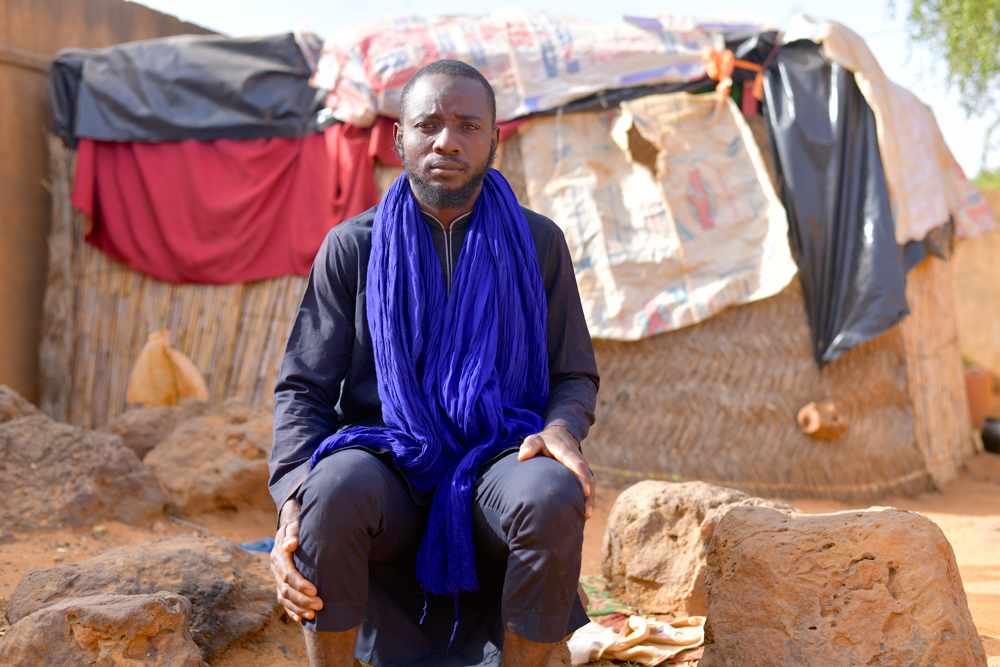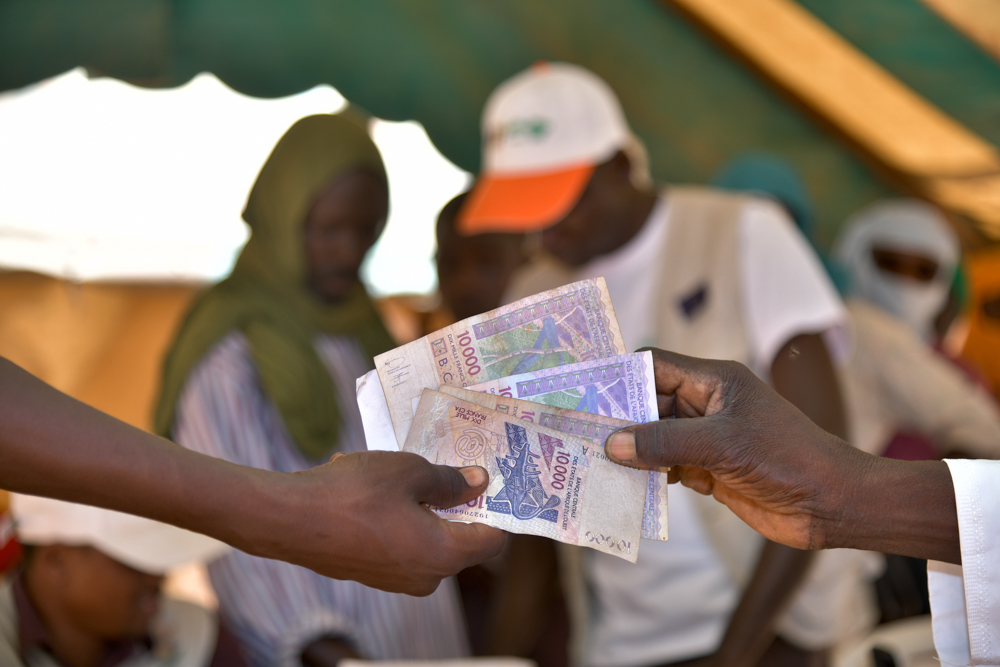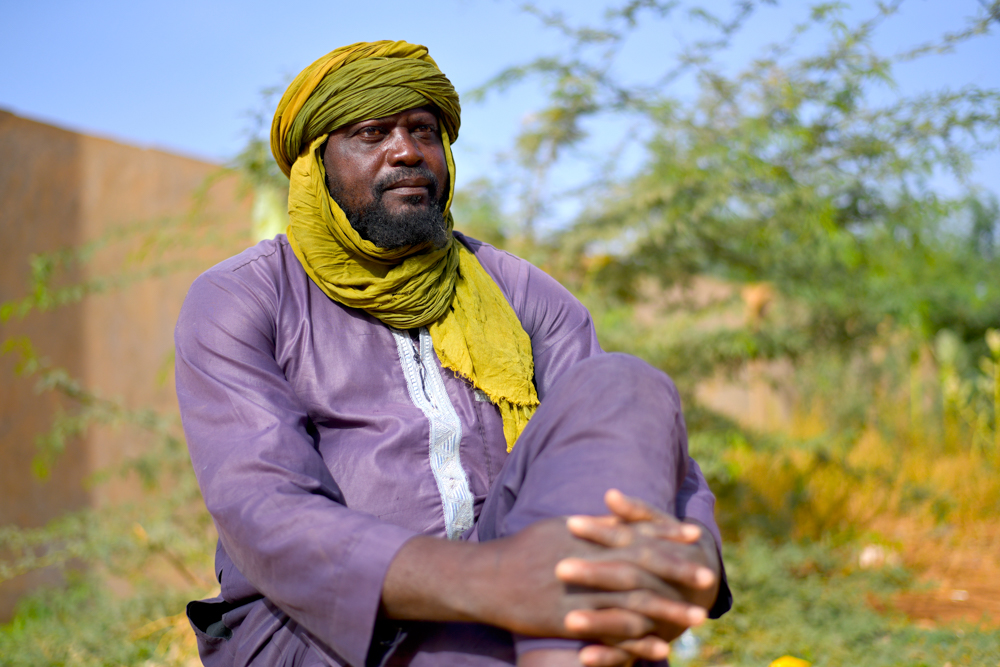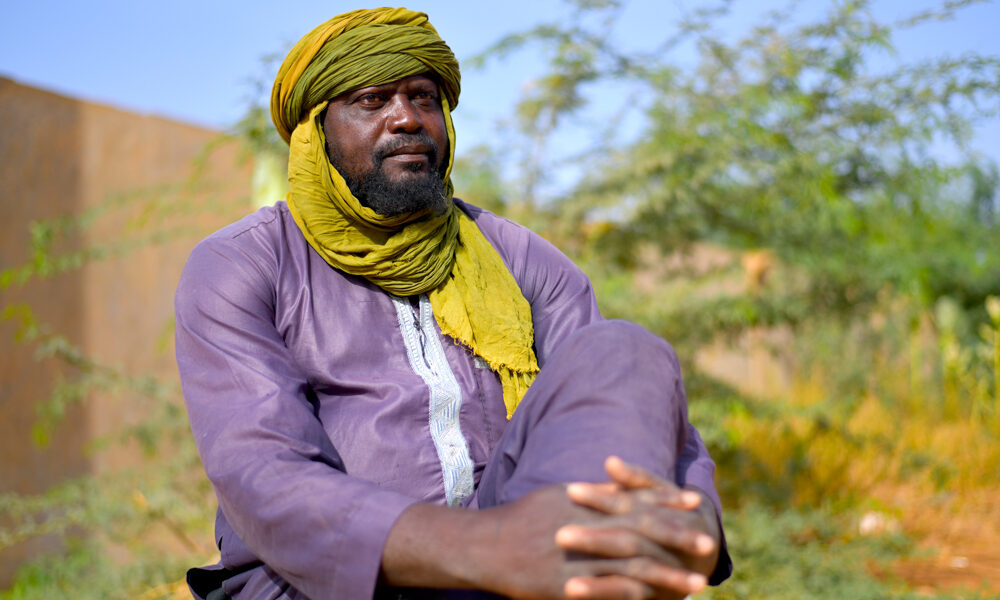Irregular and insufficient rainfall, land degradation and population displacement are just some of the reasons residents of a region in Niger have been left struggling to survive.
Farming is the main source of income for people living in the village of Salkadamna, in the Tahoua region, but extreme conditions – particularly during the lean season (June to September) – have left people unable to meet their basic needs.
Concern Worldwide, with humanitarian funding from the European Union (EU), has been providing support to the most vulnerable members of the community with initiatives such as cash transfers, flour distribution and cooking demonstrations.
Since May 2023 Concern has reached 2,165 households with each household receiving four monthly installments of 40,000 West African CFA franc (€61).

‘We lacked everything’
Laouali Andillo (42) is a labourer. He also sells wood (which is used for cooking) to earn extra income during the lean season but he said it was not enough to support his three children.
He explained:
“The past lean season was too hard, we lacked everything. There were no building sites in or around the village to work on”. “I sold a few pieces of dead wood to meet our food needs, but that was not enough. I worked for many days in someone’s field to get some money. I was paid 1,500 FCFA (€2.3) for a day’s work. It wasn’t enough, but you do what you can.”
He says cash transfers provided a lifeline for his family during that difficult time, explaining: “Every time I received the 40,000 FCFA, I bought a sack of millet (100 kg) for 29,000 FCFA and about 28 kilos of sorghum for 4,000 FCFA.
“The rest, I bought condiments and drinking water (25 francs (0.04 Euro) for a 25-litre can). This way, I was able to cover my household’s food needs for a month.”

‘He is doing better’
Humble flour may be a staple in homes around the globe but one mother has credited it as a key reason why her baby has recovered from illness and is now smiling and thriving.
Fortified flour is a high-protein, high-energy food designed to prevent infant malnutrition. It is made of millet (or maize), soya and groundnuts. This flour is distributed to households with malnourished children or children at risk of malnutrition, in order to help them get back on their feet. During the distributions, there are also cooking demonstration to show families how to use this flour.
Mother-of-three Aminatou Abdoulaye (33) said she received the flour alongside the cash transfers and is thrilled that it has helped her young son.
She said: “During the first cash distribution in June 2023, Concern gave me six kilos of fortified flour and advised me to use it to prepare porridge for my child. My youngest son is 10 months old and is often ill.
The EU’s support to Concern in this region aims to ensure food shortages don’t end up harming the weakest and most vulnerable. “In four distributions, I received 24 kilos of flour that I use to prepare porridge for my child. To do this, I rinse the necessary utensils with soap and water, then put a bowl of flour and two litres of water in the pot. I stir the contents for a few seconds and then put it on the fire. I keep stirring until the contents change colour from dark yellow to light yellow… and that’s it,” Aminatou said.
“I regularly give my son this porridge. Honestly, I noticed that he is doing better these days. He now smiles to his brothers and sisters, eats well and drinks lots of water.”

Distribution process
Programme facilitators worked alongside community members to identify which households needed the support most.
Adamou Oumaro is also based in Salkadamna village and received cash transfers. He explained how the selection and distribution process worked: “My household was registered along with all of the other households in the village of Salkadamna. I then attended a community meeting where we reviewed the list. I was satisfied with the categorisation made by Concern’s staff, because all the poor people I know in the village were included in the final list. Finally, the team informed us about the distribution process, in particular the dates, locations and logistics planned.”
This intervention was particularly important this year as the lean season was made even more difficult for people by instability in the region.
Concern’s Country Director for Niger, Francesco Tropea said the instability had exacerbated a food crisis in the country, where 4.3 million people require humanitarian assistance, including two million children.
He said: “There are hundreds of thousands of children under five years of age suffering from acute malnutrition, which is fatal if not treated and also many malnourished pregnant and breastfeeding women.
“As of June 2023, 400,000 people were internally displaced. In addition, the country is hosting 250,000 refugees from the region.
“The people of Niger need help from the global community now more than ever.”


